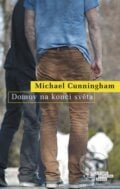Work
Best of Interior Design
The illustrated volume "Work: Best of Interior Design" of the new "Best of" series focuses on the design of modern office spaces and buildings. Starting with traditional cubicles, on to custom designed work environments... Číst víc
Potřebujete poradit knihu?
Zeptejte se online knihkupce!
Proč nakupovat na Martinus.cz?
- Doprava zdarma od 999 Kč
- Více než 5 000 výdejních míst
- Záložky ke každému nákupu










